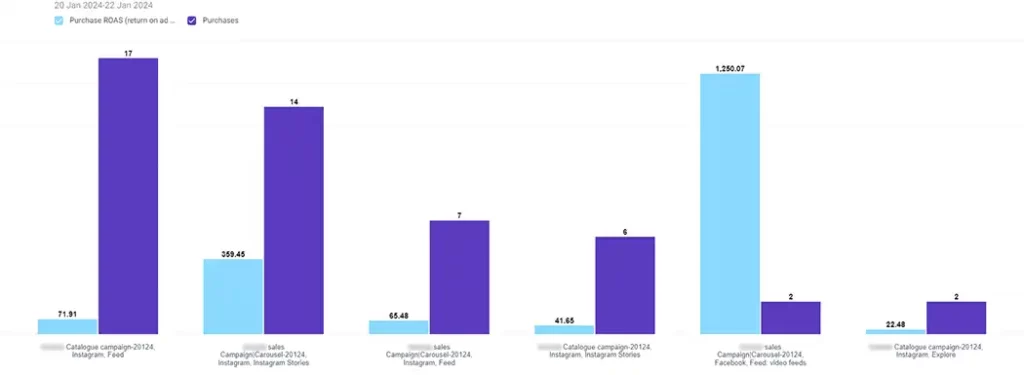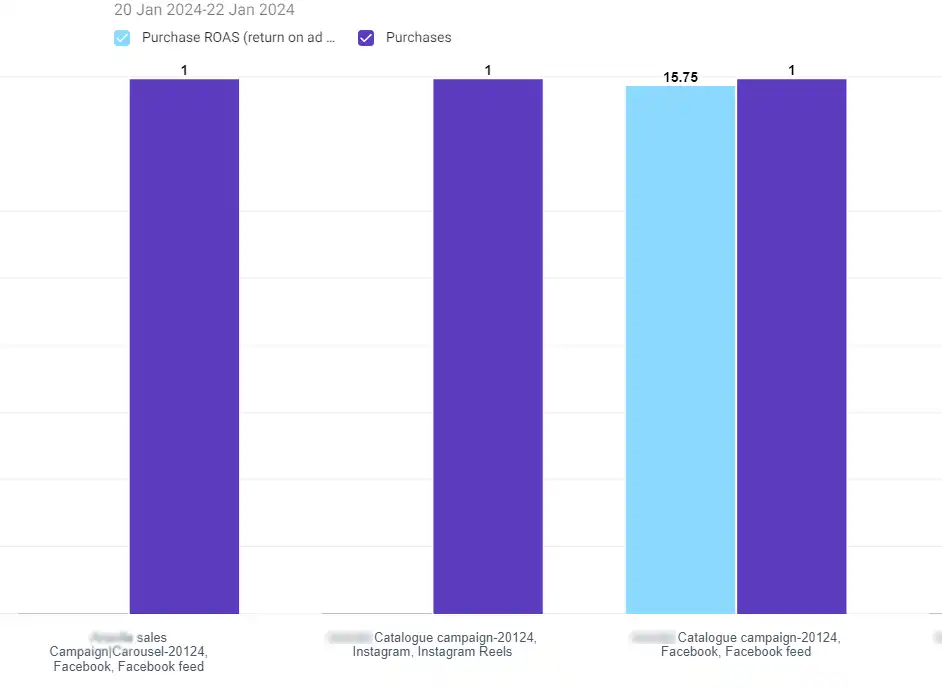In the rapidly evolving world of fashion, one brand stands at the intersection of luxury and sustainability. With a commitment to eco-friendly practices and high-quality, sustainable materials, this brand sought to make a significant impact during a critical sales period. Facing the dual challenges of a competitive market and the urgent need for sustainable practices in the fashion industry, the brand embarked on a strategic digital marketing campaign to drive sales and promote sustainability.

CONTEXT AND CHALLENGES
The fashion industry is at a crossroads, grappling with its environmental impact while striving to meet consumer demand for ethical and sustainable products. Our client, a luxury fashion brand with a strong focus on sustainability, faced the challenge of increasing sales during a crucial sale period. The task was further complicated by a last-minute brief, necessitating rapid action and strategic planning. The brand needed to navigate these complexities, emphasizing its commitment to sustainability while achieving its sales targets.

STRATEGY
To address these challenges, the brand opted for a targeted digital advertising campaign leveraging the power of Google’s retargeting capabilities and Meta’s interest-based targeting. The strategy was twofold: to reconnect with previous website visitors who showed interest in sustainable fashion and to attract new customers aligned with the brand’s values. This approach aimed not only to drive sales but also to raise awareness about the importance of sustainable practices in fashion.
EXECUTION
The campaign was executed with precision and agility, deploying ads across Meta and Google platforms. A total budget of ₹13.8K was strategically allocated to maximize reach and engagement. Through Meta, the campaign utilized interest-based targeting and dynamic creative optimization, resulting in personalized ad experiences for the audience. On Google, retargeting efforts ensured that past visitors were reminded of the brand’s offerings. The campaign’s creative elements highlighted the brand’s commitment to sustainability, featuring eco-friendly materials and ethical production processes.
BROADER IMPLICATIONS AND CONCLUSION
The success of this campaign goes beyond the impressive numbers; it serves as a beacon for the fashion industry’s potential transformation towards sustainability. By achieving a high ROAS and driving significant sales through targeted digital advertising, the campaign demonstrated the viability of sustainable fashion in a competitive market. Furthermore, it underscored the importance of brands adopting eco-friendly practices not just as a moral imperative but as a strategic advantage.

In an era where consumers are increasingly conscious of their environmental impact, the campaign’s focus on sustainability resonated deeply, proving that ethical practices can coexist with commercial success. This case study not only highlights the achievements of a forward-thinking fashion brand but also calls for a broader industry shift towards sustainability. As the fashion world continues to evolve, integrating sustainable practices will become essential, not optional, for brands looking to thrive in a conscientious market.
By embracing innovative digital marketing strategies and committing to sustainability, the brand has set a precedent for the industry, showing that it is possible to achieve commercial success while positively impacting the planet. This case study serves as a compelling example of how strategic digital marketing, combined with a commitment to sustainability, can lead to significant business outcomes and contribute to the pressing need for environmental responsibility in the fashion industry.